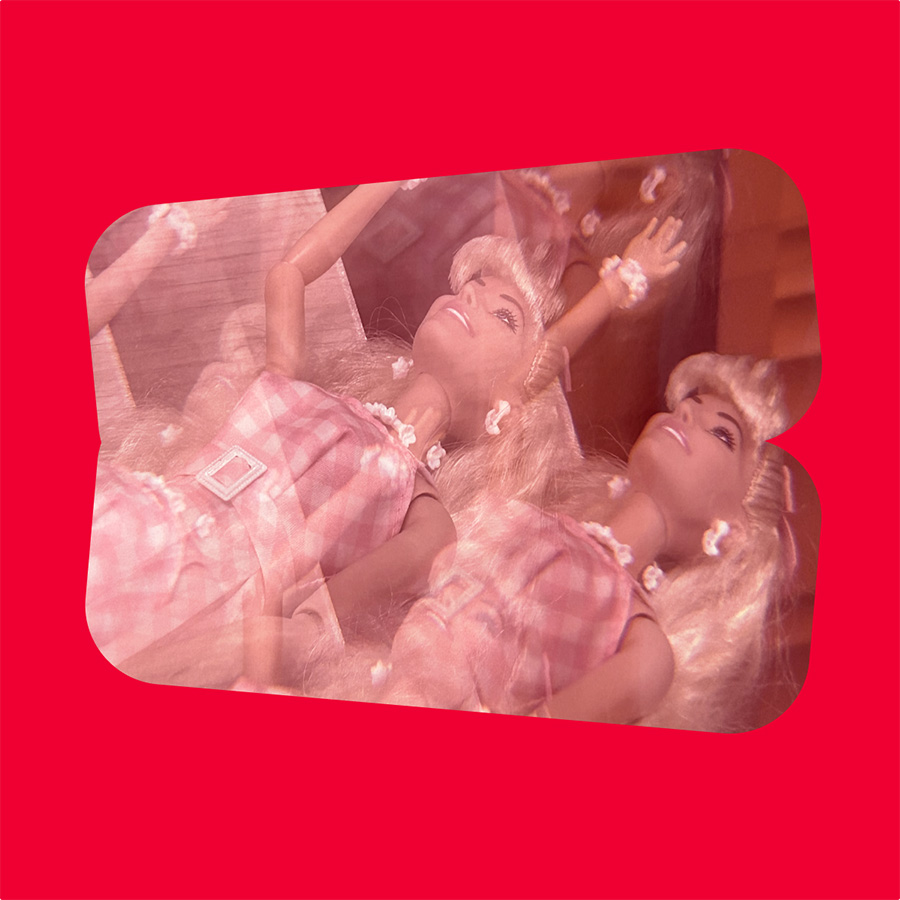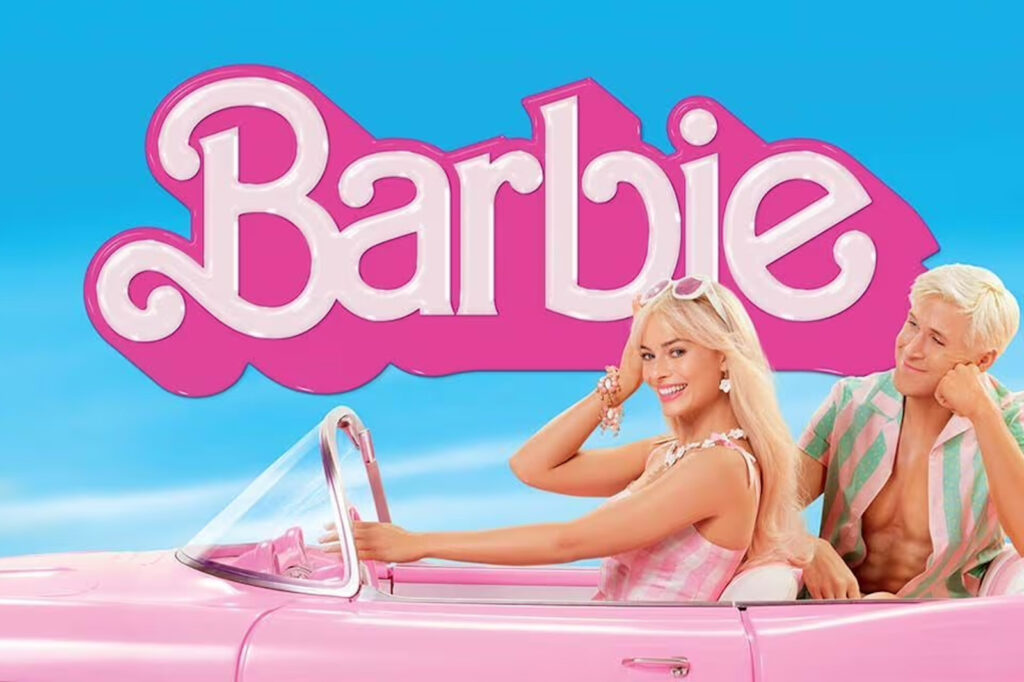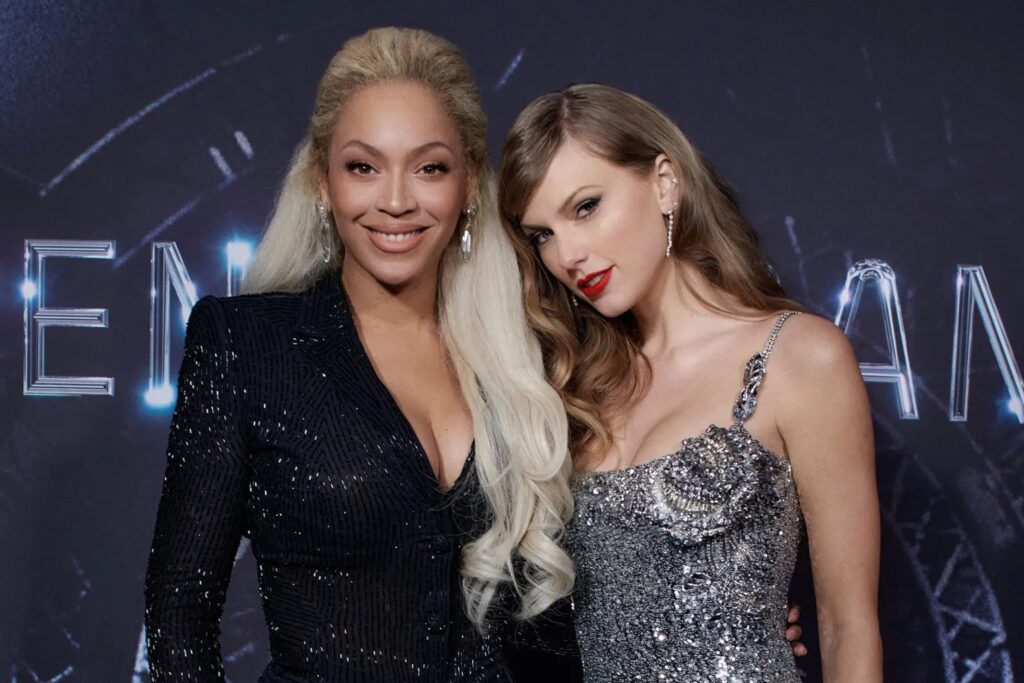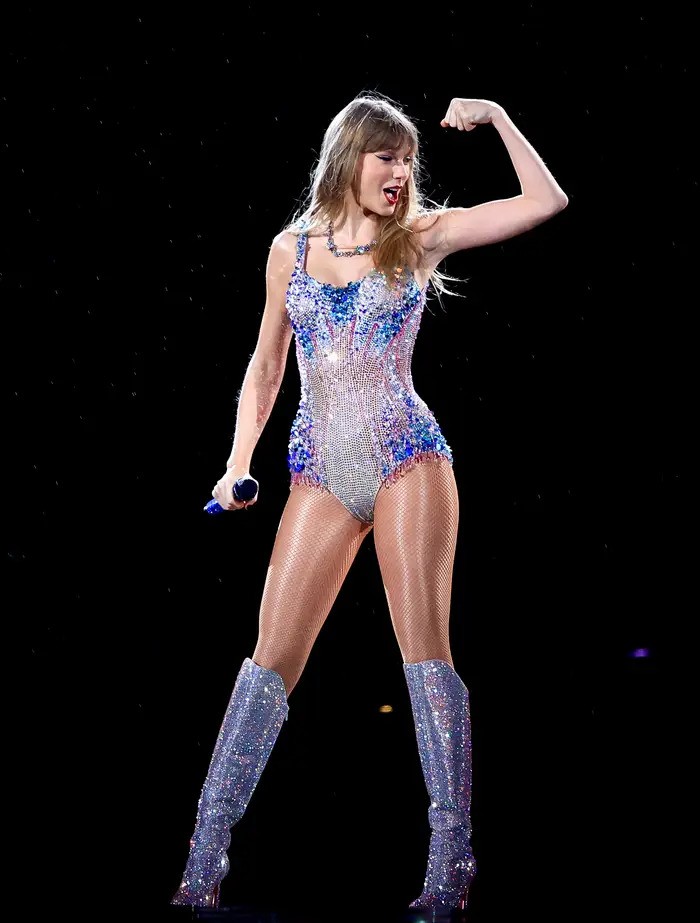Women
How Empowered Femininity Became a Brand
Published
January 25, 2024
By
Tracey


(Credits: Warner Bros)
At the opening weekend of Barbie, I forgot to wear pink. I had not anticipated the level of excitement around the film and was surprised to find myself in a sea of rose, coral and fuchsia. Women and girls were decked out in ultra-feminine fits, and even men had turned out in pink. In the theatre, everyone laughed at hapless males and sighed about the struggles of womanhood. By the time we were midway through the film, I realised I wasn’t just watching a movie, I was witnessing feminism go mainstream.
Narratives about women, by women, now dominate the world of entertainment. As one of the last remaining fronts of pop culture with truly mass appeal, these masterworks represent “the roaring return of big tent monoculture”. Last year, Greta Gerwig’s Barbie became the first woman-directed film to gross over a billion dollars, and equally staggering amounts were generated by the concert tours of Taylor Swift and Beyoncé. Female artists top billboard charts, shatter box office records, and set off earthquakes. Against a media landscape fragmented into subcultures and niche tastes, these women have united fans across the world, under the banner of a proud, empowered femininity.

(Credits: Rolling Stone)
Glitter makes the feminism go down easier
This monoculture of empowerment is embodied by the mature woman. Stars like Margot Robbie, Greta Gerwig, Taylor Swift, and Beyoncé are all in their 30s and 40s, confident in their craft, at the peak of long and illustrious careers.
These female entertainers put immense care, effort, and artistry into creating magical experiences for audiences. Like many, I was awed by accounts of Swift’s gruelling concert training, and inspired by the many takes that America Ferrera went through to nail a single, stirring scene.
Beyond their individual achievements, they also show support for their counterparts, despite the media pitting them against one another. It was a win for women everywhere when Taylor Swift and Beyoncé turned up for each other’s movie premieres.
Images of female strength and success have straight up disrupted our cultural imagination. On Halloween, my friend came to class in a full Barbie costume, with the hot pink vest, pants, and bandana. She had gotten lucky; apparently there was a long waiting list for this outfit. That women are styling themselves after Margot Robbie points to the complete rehabilitation of Barbie, from a problematic toy to a feminist icon.
It’s just one instance of how the language of empowerment now comes in pink and silver, in friendship bracelets and glittery manicures. This all makes for a compelling variety of feminism, so self-aware and ironic and postmodern that it absorbs elements of traditional femininity, seemingly without contradiction.

(Source: Getty Images/Buzzfeed)
What’s not to love?
If female empowerment is having a cultural moment, most of us are participating in it and engaging with it primarily as consumers. The average Swiftie or Beyoncé fan spends over USD$1000 on tickets, travel, and clothes to attend a concert. Every kind of merchandise imaginable was given the hot pink Barbie treatment. It makes sense — women have waited a long time to be represented in more authentic ways, and we’re eager to take in more uplifting, exuberant women-made film, music, and performance.
But amidst the hype and excitement, it can also be hard to question the female role models we hold up — and what they reflect about our societal values — without seeming like a total killjoy. When Time magazine announced Taylor Swift as the 2023 Person of the Year, the news struck me as both heartening and disquieting. The question of whether Swift deserves the accolade is beside the point; there’s no doubt she’s a songwriting savant who has achieved both cultural reach and resonance to become a global phenomenon. Yet, platforming a pop star feels dissonant at a time when the world is also dealing with ongoing humanitarian crises, an escalating climate catastrophe, and persistent class inequality.
The wider conversation around the women we admire doesn’t always invite nuance. How do we celebrate a musical genius whose lyrics make girls feel seen, while conscious of how we’re centering another rich, white woman? How do we discuss the impact of a pop icon who pays her crew generous salaries but also emits more private jet emissions than any other celebrity? How do we enjoy the collective energy of concerts that also promote fast fashion consumerism?
The limits of our current social discourse are clearest in the famous Barbie monologue, a pithy articulation of the intractable binds women face every day. Watching it was moving and cathartic, and every bit felt true to my own experience: the competing demands imposed on women; the balancing act between career and family, constant beauty work and the appearance of effortlessness; the impossible logic of doing it all.
And yet, the things I found most relatable were also the most generic. There was no mention of how the individual experience of womanhood is shaped by class and racial privilege, or by the diverse bodies and abilities we’re born with.
The trouble, I suspect, with this monoculture of empowered femininity is precisely why it’s been so readily embraced — it’s packaged for universal consumption, and it goes down easily. This monoculture might at times acknowledge the complexities women contend with, only to quickly elide and move past them. There are no further questions to wrestle with, no differences to work through. In so far as feminism has become a brand, it’s also a dead end.

